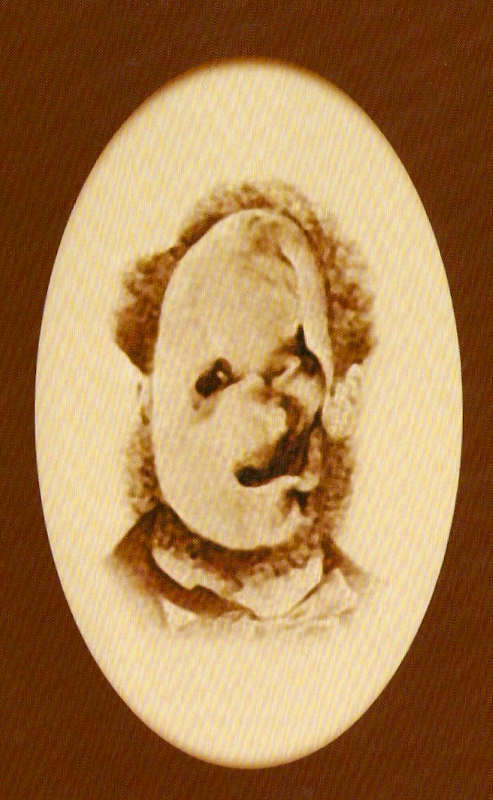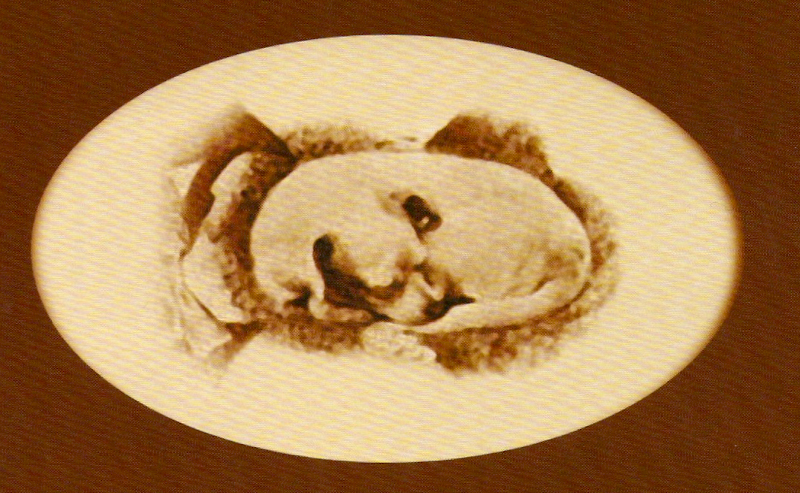Search Results for: in a word
Long Distance
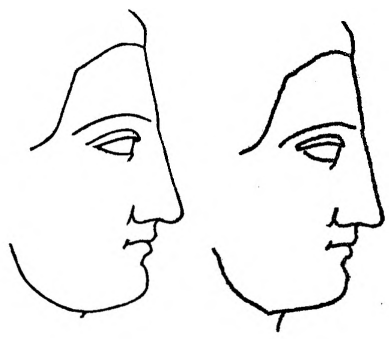
Francis Galton was interested in communicating with Mars as early as 1892, when he wrote a letter to the Times suggesting that we try flashing sun signals at the red planet. At a lecture the following year he described more specifically a method by which pictures might be encoded using 26 alphabetical characters, which could then be transmitted over a distance in 5-character “words,” in effect creating a low-resolution visual telegraph. As a study he reduced this profile of a Greek girl to 271 coded dots, which he found yielded “a very creditable production.”
This had huge implications, he felt. In 1896 he imagined a whole correspondence with a civilization of intelligent ants on Mars; in three and a half hours they catch our attention; teach us their base-8 mathematical notation; demonstrate their shared understanding of certain celestial bodies and mathematical constants; and finally propose a specified 24-gon in which points can be situated by code, like stitches in a piece of embroidery.
That opens a limitless avenue for colloquy — the Martians send images of Saturn, Earth, the solar system, and domestic and sociological drawings, a new one every evening. Galton concludes that two astronomical bodies that are close enough to signal one another with flashes of light already have everything they need to establish “an efficient inter-stellar language.”
Matriarch

In 1956, ornithologist Chandler Robbins tagged a wild female Laysan albatross at the Midway Atoll National Wildlife Refuge in the North Pacific. The bird, dubbed Wisdom, went on to a stunning career, flying more than 3 million miles, equivalent to 120 trips around the Earth. She has been seen at the atoll as recently as last December, making her, at 72, the the oldest known wild bird in the world.
In that time she’s hatched as many as 36 chicks, a significant contribution to the struggling wild albatross population. The U.S. Fish and Wildlife Service wrote, “Her health and dedication have led to the birth of other healthy offspring which will help recover albatross populations on Laysan and other islands.” Bruce Peterjohn, chief of the North American Bird Banding Program, added, “To know that she can still successfully raise young at age 60-plus, that is beyond words.”
Bootstraps
The 45-letter pneumonoultramicroscopicsilicovolcanoconiosis is often cited as one of the longest words in English — it’s been recognized both by Merriam-Webster and by the Oxford English Dictionary. The OED Supplement traced it to a 1936 puzzle book by Frank Scully called Bedside Manna, defining it as “a disease caused by ultra-microscopic particles of sandy volcanic dust.” But in fact it had appeared first in a Feb. 23, 1935, story in the New York Herald Tribune:
Puzzlers Open 103rd Session Here by Recognizing 45-Letter Word
Pneumonoultramicroscopicsilicovolcanoconiosis succeeded electrophotomicrographically as the longest word in the English language recognized by the National Puzzlers’ League at the opening session of the organization’s 103d semi-annual meeting held yesterday at the Hotel New Yorker.
The puzzlers explained that the forty-five-letter word is the name of a special form of silicosis caused by ultra-microscopic particles of silica volcanic dust …
At the meeting NPL president Everett M. Smith had claimed the word was legitimate, but in fact he’d coined it himself. Distinguished by the newspaper, it found its way into Scully’s book and thence into the dictionaries, “surely one of the greatest ironies in the history of logology,” according to author Chris Cole. Today it’s recognized as long but phony — Oxford changed its definition to “an artificial long word said to mean a lung disease caused by inhaling very fine ash and sand dust.”
(Chris Cole, “The Biggest Hoax,” Word Ways 22:4 [November 1989], 205-206.)
Half Measures
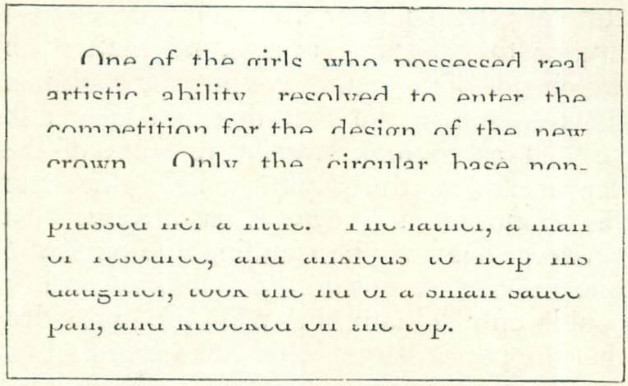
When we read type we imagine that we read the whole of the type — but that is not so; we only notice the upper half of each letter. You can easily prove this for yourself by covering up the upper half of the line with a sheet of paper (being careful to hold the paper exactly in the middle of the letters), and you will not, without great difficulty, decipher a single word. Now place the paper over the lower half of a line, and you can read it without the slightest difficulty.
— George Lindsay Johnson, “Some Curious Optical Illusions,” Strand, October 1897
11/04/2024 UPDATE: In the experimental writing system Aravrit, devised by typeface designer Liron Lavi Turkenich, the upper half of each letter is Arabic and the lower half is Hebrew:
(Thanks to reader Djed F Re.)
Oh
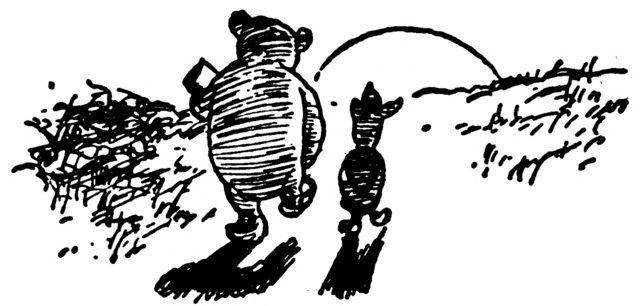
If you rearrange the letters in WHAT IS THE MEANING OR PURPOSE OF LIFE?, you get WINNIE-THE-POOH, SUFFER PIGLET’S AROMA.
(Discovered by John Henrick, Word Ways, May 1989.)
Limerick
Why Not?
From a letter from English scholar Walter Raleigh to Mrs. F. Gotch, July 2, 1898:
Doe you lyke my newe phansy in the matere of Spelynge? I have growen wery of Spelynge wordes allwaies in one waye and now affecte diversite. The cheif vertew of my reform is that it makes the spelynge express the moode of the wryter. Frinsns, if yew fealin frenly, ye kin spel frenly-like. Butte if yew wyshe to indicate that thogh nott of hyghe bloode, yew are compleately atte one wyth the aristokrasy you canne double alle youre consonnantts, prollonge mosstte of yourre vowelles, and addde a fynalle ‘e’ wherevverre itte iss reququirred.
A later poem:
Wishes of an Elderly Man, Wished at a Garden Party, June 1914
I wish I loved the Human Race;
I wish I loved its silly face;
I wish I liked the way it walks;
I wish I liked the way it talks;
And when I’m introduced to one
I wish I thought What Jolly Fun!
The Territory

Much blood has … been spilled on the carpet in attempts to distinguish between science fiction and fantasy. I have suggested an operational definition: science fiction is something that could happen — but usually you wouldn’t want it to. Fantasy is something that couldn’t happen — though often you only wish that it could.
— Arthur C. Clarke, foreword, The Collected Stories of Arthur C. Clarke, 2000
Board Walk
Al writes the numbers 1, 2, …, 2n on a blackboard, where n is an odd positive integer. He then picks any two numbers a and b, erases them, and writes instead |a – b|. He keeps doing this until one number remains. Prove that this number is odd.

